
The 5th Citizen-Scientist International Symposium on Radiation Protection
For further scientific elucidation of health risks of radiation exposure, caused by the 2011 TEPCO Fukushima Daiichi nuclear power plant accident, in order to practice better public protection and response measures
Date: Tuesday, September 22, 2015 【Day1/Day2】 Japanese
Venue: International Conference Room, National Olympics Memorial Youth Center
3-1 Kamizono-cho, Yoyogi, Shibuya-ku, Tokyo 151-0052 Japan
Day3 Program
Session 2. Tuesday, September 21, 2015
Session 2: Discourses, law, and ethics after nuclear plant accidents (starts at 9:30 pm)
Co-chairs: KAGEURA Kyo (Graduate School of Interdisciplinary and Information Sciences, University of Tokyo), SHIMIZU Shuji (Fukushima University)
Round-table discussion: Discourses, law, and ethics after nuclear plant accidents
Name |
Lecture Title |
Abstract |
Slides |
|
 |
A Historical Perspective on (Re)Setting Standards for Post-Chernobyl Radiation Protection in Belarus |
(329kb) |
||
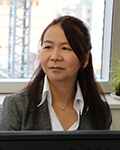 |
Who Judges and Who Forgives? |
(2.5mb) |
||
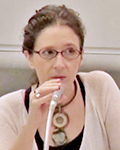 |
From conceptualization to slogan, when science becomes a tool of politics: The case of management of migratory flows in a nuclear catastrophe. |
(2mb) |
||
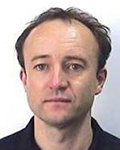 |
Ethical reflections on risk assessment in post-nuclear accident situations |
(1.7mb) |
||
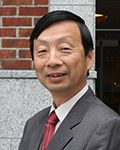 |
Challenges of Fukushima nuclear power plant accident compensation lawsuits — centering on the relief of voluntary evacuees. |
(3mb) |
||
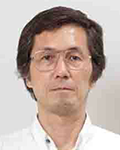 |
Civil Control of Power Structures and Necessary Legal Systems |
(3mb) |
Day3 Tentative schedule (subject to change)
9:00 ~ |
Doors open |
9:30 ~ |
Session 2: Discourses, law, and ethics after nuclear plant accidents |
14:30 ~ |
Round-table discussion: Discourses, law, and ethics after nuclear plant accidents |
~ 19:00 |
Conclusive remarks: Co-chairs Sebastian PFLUGBEIL and SHIMAZONO Susumu |
Olga Kuchinskaya
Affiliation:University of Pittsburgh
Research Areas:Social studies of science and technology Risk communication
Profile
Dr. Kuchinskaya is an assistant professor in the Department of Communication, University of Pittsburgh. She is the author of The Politics of Invisibility: Public Knowledge about Radiation Health Effects after Chernobyl (MIT Press, 2014)
A Historical Perspective on (Re)Setting Standards for Post-Chernobyl Radiation Protection in Belarus
Olga Kuchinskaya
Abstract
The 1986 Chernobyl accident is said to offer a number of lessons for mitigating the consequences of the Fukushima Daiichi nuclear disaster. This presentation examines historical changes in approaches to post-Chernobyl radiation protection in Belarus and some corresponding fluctuations in recognition of the consequences of Chernobyl. Approaches to radiation protection in Belarus were redefined several times, under different political circumstances, and each time the scope of the recognized radiological contamination shrank or expanded radically. The presentation draws conclusions about the production of invisibility of Chernobyl’s consequences - that is, practices and conditions that displace radiological contamination and its health effects as an object of public attention and scientific research, and make them unobservable.
Hiroko Aihara
Affiliation:Japan Perspective News, Inc.
Research Areas:Journalist specializing in medical ethics, the Great East Japan Earthquake, Fukushima Prefecture and the nuclear power plant disaster, and gender issues.
Profile
Hiroko Aihara is a freelance journalist representing Japan Perspective News based in Fukushima City, Fukushima Prefecture, Japan.
Hiroko’s illustrious 25-year career as a journalist spans from 1990 to 2015. Her career as a journalist started at a major local newspaper company, the Fukushima Minyu, in Fukushima Prefecture. During the term, she specialized in medical and clinical ethics.
While working at Fukushima Minyu, she was selected as a Fulbright Journalist in 2005. As a research scholar at the Liver and Gastrointestinal (GI) Department, Miller School of Medicine, University of Miami, she studied organ transplantation in the U.S. medical care. She also researched on Japanese-American immigrants.
After completing the Fulbright research, Hiroko was selected to research medical ethics and organ trade in the Philippines at the University of the Philippines and Ateneo de Manila University in 2008 and 2009. The research was sponsored by the Nippon Foundation Asia Public Intellectuals Fellowship program.
One of Hiroko’s significant works is a special report comprising a series of 75 stories on Japanese-Americans from Fukushima Prefecture, which won a special award at commemoration of the 100th anniversary of the South California Japanese-Americans Society of Fukushima Prefecture.
After March 11, 2011, she became affiliated with Nikkei Business Online and contributed weekly online columns called “The Viewpoint from Fukushima,” covering the latest news about Fukushima Prefecture. She currently appears in bi-weekly video clips on Tokyo-based Videonews.com, where she talks about the current situation in Fukushima. She also writes articles about the earthquake, tsunami and nuclear plant disaster for a bi-weekly magazine, The Big Issue Japan, which is sold on the streets in major cities by homeless people, helping them return back into society by selling the magazine.
Much of Hiroko’s focus is on the status of children’s daily life and on the socially vulnerable in Fukushima after the earthquake and the nuclear disaster — how they are struggling and fighting to survive under the tough circumstances caused by the radioactive fallout.
Regarding her education, Hiroko graduated from the Department of Letters (Social Science Section), Chiba University and was trained in the one-year course of the University of Tokyo Healthcare and Social Policy Leadership Program and Center for Biomedical Ethics and Law. She is currently a student at the Graduate School of Public Policy and Regional Administration of Fukushima University.
Who Judges and Who Forgives?
Kimin (Upstanders) Overcoming Gaps in Dialogue
Hiroko Aihara
Abstract
Law and ethics surrounding radiation exposure — ethics as a frame
Modern medical ethics — self-inspection in the history of human experimentation: The Holocaust (human experimentation by the Nazi physicians), and Unit 731 (human experimentation by the Japanese Kwantung Army physicians)
Human experimentation with plutonium injections (18 people injected over 50 years in the U.S.)
Health surveys after the atomic bombings; Atomic Bomb Casualty Commission (ABCC); tissue sample collection from Hibakusha
98,000 iatrogenic deaths annually in the U.S.
The Nuremberg Trials of the Nazi — contributed to the preparation of guidelines for preventing human experiments; while in Japan, human experiments became obscure → history of Unit 731
“None other than I am responsible for my body and health, as physicians cannot carry my pain and suffering on my behalf.” → A patient should play a centeral role in medical care.
What is beyond “To Err is Human” (issued in 1999 by the U.S. Institute of Medicine or IOM; translated by the Medical Journalists Association of Japan and published in Japan in 2000). (“To err is human, to forgive, divine.” by Alexander Pope, an 18th century British poet)
Medical ethics: Strong paternalism and informed consent
IOM: “To err is human”— “to forgive, divine”
Developmental stages in medical care — mutual sharing between physicians and patients of knowledge, personal experiences, and experiences (collective and empirical knowledge)
i) The stage characterized by physician paternalism (accepted as an exception in emergency); physician response based on own discretion (memories, experiences and personal experiences); with physician’s discretion playing a dominant role. ii) Informal participation by patients (citizens) where discretion by the physician is still strong, and the patient passively accepts medical care. iii) Formal participation by patients (citizens), the stage where renewal and update of the physician discretion is desired. Sharing and introduction of the latest information and evidence. iv) Treatment selection centers on the patient (citizen) (The final stage is considered ideal).
Medical treatments during the wartime ― Strong paternalism was tolerated and human experiments were covered up. Situations where problems can easily occur with exercise of strong paternalism are wars, disasters, conflicts, and chaos.
Informed consent: It is not enough for a physician to explain the treatment and ask a patient to agree and sign a consent form. A shift from informed consent (agreement) to informed choice (selection), and further to informed consent and decision-making (agreement and decision).
An opportunity for sufficient information sharing and discussion is essential.
Voices of the exposed population encompassing generations and nations.
A statement by the Iitate Village assembly member: “We are being used as guinea pigs.” — policies and surveys lack participation and consent of residents.
Medical Shock Doctorine unfolds under the premise of “safety” and “security.”
Personal dosimeters with an automatic GPS data collection function; incorporation of the collected data into big data. Japan Eco & Child Study. The genome study.
Surveys presupposing “safety.” What about “security,” then?
Human experiments also took place in the Marshall Islands — disadvantages of health surveys.
Project 4.1. Intravenous injection of radioactive chromium.
Repetition of health surveys without treatments.
Citizens robbed of a main role in decision making: Kimin [abandoned people]. The need for a discussion arena on the citizens’ side. Abandoned people who speak up have now become the other Kimin [Upstanders].
“A language that enables us to talk about our future with confidence—
that very language is expected to be the core of a new system of law in Japan after the nuclear power plant accident.”
A book Never Pure, and the experts after the nuclear power plant accident” — a metaphor of invisibility.
Information sessions in Fukushima City for the glass badge — a political factor of radioactivity.
Q. “How many people get cancer in Japan recently?”
A. ① 1 in 10, ② 1 in 5, ③ 1 in 2
Between politics and ideology, and between scientific and neutral — Are experts going beyond their own research/specialty fields considered experts? Radiation medicine experts are not well defined.
Collective, empirical and personal knowledge of residents ignored.
Unclear if there are conflicts of interest, compteting interests, and policy-making processes with the experts.
Who owns the Fukushima Health Management Survey data? Dr. Shinichi Suzuki and his use of data in academic papers — Who made a decision to approve such use of data? The other side of the Health Survey with the population underrepresented, and the participation rate barely reaching 30% .
Kids’ Cancer Seminar: “Especially in Fukushima, we need the best cancer education in Japan!”
Voices of Kimin are heard (abandoned people transform into “Upstanders” by speaking up) — When does someone become hibakusha? Wartime and peacetime radiation exposure.
“This is like war.” by the developer of Geiger Fukushima (2012).
Political minimization of voices of residents: In reality, statements such as “We would like to return under the condition of XX.” and “We would like to return if we could, but…(there is no way we could return).” are treated the same.
“Lie, Deny, Classify.” A scheme for neglecting radiation exposure. Tony deBrum, former Foreign Minister of the Marshall Islands.
Who judges? Who forgives?: From a politically invisible field where no answer is found, to a perspective as a global citizen, FUKUSHIMA.
“Fukko (reconstruction)” and “Fuhyo Higai (damage from baseless rumor)” as metaphors giving rise to protection words, invisible fields, and gaps in dialog.
Beauty concealing radiation exposure and anger of the people: Takashi Nagai, a martyr, and Shunichi Yamashita, a christian — “Beautiful Japan” and “Beautiful Island, Fukushima.”
Human rights, radiation exposure, and nuclear issues — a perspective of FUKUSHIMA as a world citizen and a global citizen.
(Bio)ethics from below — “bioethics demanded from below.”
Cécile BRICE
Affiliation:French National Research Center (CNRS)
Research Areas:Urban Sociology
Profile
Deputy Director of National French Research Center (CNRS) Representative office in North Asia. Ph.D. in Urban Sociology. Graduate of the School for Advanced Studies in the Social Sciences (Ecole des Hautes Etudes en Sciences Sociales EHESS, Paris). Associate researcher at the laboratory of Sociology and Economy (CLERSE) of University of Lille (France). Associate researcher of contemporary Japan studies research center of Maison Franco-Japonaise (Japan). Permanent resident in Japan since 2001. Main research field: (public) housing policy. Since 2011, she has authored many papers on Japan’s management of migratory flows after the nuclear disaster, and has organized and took part in numerous symposia on this topic.
From conceptualization to slogan, when science becomes a tool of politics: The case of management of migratory flows in a nuclear catastrophe.
Cécile BRICE
Abstract
After three nuclear accidents with planetary consequences, our societies are still talking about threat and risk, while the danger is already becoming a constant reality— yesterday, today and tomorrow. The existing political establishment is endangering the residents by forcing them to return to their evacuated homes. Some also defend the need for salvaging disaster, demanding that the victims take responsibility. The nuclear era drags us into a vortex of self-destruction controlled by the politico-economic discourse, as science, tied to the industry with reliance on its economic profit, submits itself to the current evacuee return policy.
Gaston MESKENS
Affiliation:Centre for Ethics and Value Inquiry, University of Ghent (Belgium)
Science & Technology Studies Unit, SCK•CEN (Belgium)
Research Areas:Ethics, Human Rights, Global Governance, Technology Assessment
Profile
Gaston Meskens works as philosopher and artist. He holds master degrees in theoretical physics and nuclear physics from the University of Ghent (Belgium). He works part-time with the Centre for Ethics and Value Inquiry of the Faculty of Arts and Philosophy of the University of Ghent and with the Science and Technology Studies group of the Belgian Nuclear Research Centre SCK•CEN. At the Centre for Ethics and Value Inquiry, his research (in the form of a PhD in moral philosophy) advances on a critical analysis of the working of the knowledge-policy interface in the context of ongoing global governance policy processes and focuses on a human rights perspective related to intellectual capacity building in the interest of global sustainable development governance. Motivated to apply the philosophilcal research and activism to a practical case, he co-founded the 'Programme of Integration of Social Aspects into Nuclear Research' of the SCK•CEN in 1999. The programme takes nuclear technology as a case in order to critically study the complexity of risk-inherent technology assessment from the perspective of social justice and sustainable development. At SCK•CEN, Gaston Meskens is now working as researcher, writer, lecturer and mediator of dialogue on ethics in relation to science, education and democratic decision making. Based on the idea that ‘philosophical activism’ also needs some kind of meta-reflection, Gaston Meskens developed an art practice parallel to his philosophical work. This ‘art as research’ practice advances from the question of what social agency and humanism can mean ‘in a world still struggling with the cramps of modernity’. In practice, the art suggests the existence and working of a hypothetical research institute that engages in the study of ‘a new humanism beyond the comforts of ideological polarisation, political detachment and social pseudo-tolerance’, and this in all possible art forms (web presence, text, visual materials, music & soundscapes, installations, performances and happenings).
Ethical reflections on risk assessment in post-nuclear accident situations
Gaston MESKENS
Abstract
Nuclear accident victims are citizens. Before the accident, they had an opinion on nuclear, positive or negative. After the accident, they may have changed their opinion, or not. Before the accident, they may have had the opportunity to co-decide on the use of nuclear energy and on the siting of the power plant, or not.
The presentation will argue that evaluations of the ethical aspects of post-accident situations cannot be isolated from the ethical considerations with respect to how the risk of the nuclear application was justified in the first place. In addition, also in post-accident conditions, risk assessment remains to be complicated by knowledge-related uncertainty and value pluralism. The ethics of risk assessment thus remain the same as in the situation before the accident. One consequence is that nuclear accident victims, as citizens, have the right to participate in post-accident decision making in the same way as they would have had before the accident.
The presentation will elaborate on these reflections from a philosophical perspective and with a view on the reality of existing post-accident situations. In addition, it will critically analyse two specific post-accident ethical cases to illustrate the complexity of risk assessment and the consequences thereof in terms of social justice.
YOSHIMURA Ryoichi
Affiliation:Graduate School of Law, Ritsumeikan University
Research Areas:Civil Law, Environmental Law
Profile
1974 Faculty of Laws, Kyoto University
1987 Professor, College of Law, Ritsumeikan University
1992 Doctorate degree (Laws, Ritsumeikan University)
2008 Professor, Graduate School of Law, Ritsumeikan University
Books:
Jinshin Songai Baishō no Kenkyū [Research on the personal damage compensation] (1990, Nippon Hyoron Sha), Kankyōhō no Gendaiteki Kadai [Modern challenges of the environmental law] (2011, Yuhikaku Publishing). Fukushima Genpatsu Jiko Baishō no Kenkyū [Research on the Fukushima nuclear power plant accident compensation] (2015, Nippon Hyoron Sha) (co-author).
Challenges of Fukushima nuclear power plant accident compensation lawsuits — centering on the relief of voluntary evacuees.
YOSHIMURA Ryoichi
Abstract
Many residents have filed lawsuits, demanding compensation for damages from the Fukushima nuclear power plant (NPP) accident. What has emerged as a serious challenge is the issue of aiding those who evacuated without government orders (so-called voluntary evacuees, but they might as well be called non-designated evacuees as their evacuation was not willed by choice but forced by the accident).
Because the NPP accident causes invisible damages in the form of radiation exposure, residents faced extremely difficult decisions either to evacuate to avoid radiation exposure or stay and remain exposed. The Nuclear Accident Child Victims’ Support Law specifically stipulates the principle to make self-determination by the victims possible in a true sense, equally securing the right to evacuate, the right to stay, and the right to return. However, this principle has remained no more than a pie in the sky so far, while the evacuation orders are lifted and compensation payments are discontinued in haste. Those who evacuated following the government order will become voluntary evacuees if they continue their evacuation even after the evacuation order is lifted. How the voluntary evacuee compensation is handled impacts the true nature of this accident.
This report will first present an overview of the evacuee situations four years and several months after the accident. Then an emphasis would be placed on handling the voluntary evacuee compensation from the viewpoint of the precautionary principle, based on what was discussed at the Dispute Reconciliation Committee for Nuclear Damage Compensation. (Please refer to the following regarding this issue: “’Jishuteki hinansha (kuikigai hinansha)’ to ‘taizaisha’ no songai” [Damages suffered by ‘voluntary evacuees (non-designated evacuees)’ and ‘non-evacuees’] by Ryoichi Yoshimura, pages 210 onward in Fukushima Genpatsu Jiko Baishō no Kenkyū [Research on the Fukushima nuclear power plant accident compensation] by Yoshimura, et al.)
TAKASHIMA Hidehiro
Affiliation:Department of Legal Research, Division of Law, Kyoto Sangyo University Graduate School
Research Areas:Civil Law, Medical Law, Consumer Law
Profile
Professor Takashima researches civil law at Kyoto Sangyo University. As chair of the board of the Kyoto Consumer Contract Network, a consumer organization certified by the government, Professor Takashima is also involved with bringing court injunctions against business corporations for unfair contracts.
Civil Control of Power Structures and Necessary Legal Systems
TAKASHIMA Hidehiro
Abstract
In today’s society, there is an increasing need for citizens to have a fixed degree of control over such powers as the nation, business corporations, and specialist organizations. This lecture will introduce existing legal systems enabling parts of such citizen control (such as injunction rights based on the Consumer Contract Act and civil lawsuits based on the Local Government), clarify the necessity of power control by citizens, and discuss how to establish appropriate legal systems.
KAGEURA Kyo
Affiliation:Graduate School of Interdisciplinary and Information Sciences, University of Tokyo
Research Areas:Structure of Information Media
Profile
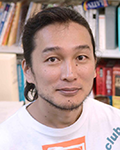
Kyo Kageura, PhD, is a professor at the Graduate School of Interdisciplinary Information Studies, the University of Tokyo. He is an editor of the journal "Terminology", author of several books including The Quantitative Analysis of the Dynamnics and Structure of Terminologies (Amsterdam: John Benjamins, 2012), and has published extensively in international journals and conferences in the fields of information studies, terminology, computational linguistics and translation studies. He also runs the online translation aid system Minna no Hon'yaku (Translation of/by/for all; http://trans-aid.jp/).
SHIMIZU Shuji
Affiliation:Faculty of Economics and Business Administration, Fukushima University
Research Areas:Public Finance
Profile
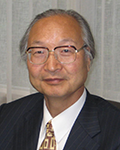
Born in Tokyo in 1948. Held various positions at Fukushima University beginning in 1980 after attending Kyoto University Graduate School. Former positions include chair of Department of Economics (now Faculty of Economics and Business Administration) and vice president of Fukushima University. Has been a specially-appointed professor since mandatory retirement in 2014. Specialties are public finance as well as public finance of local government. Became involved with nuclear power plant issues through research on the Dengen Sampo (Three Power Source Development Laws) system. Has been speaking out from within Fukushima Prefecture regarding realities of damage and various ethical and social issues since the Fukushima nuclear power plant accident. A member of the research committee of nuclear power problems at the Japan Scientists’ Association and vice chair of Oversight Committee for Fukushima Health Management Survey. Publications include Genpatsu towa Kekkyoku Nandattanoka — Ima Fukushima de Ikiru Imi (What Was a Nuclear Power Plant After All? — the Meaning of Living in Fukushima Now) (Tokyo Shimbun, 2012).
Sebastian PFLUGBEIL
Affiliation:Gesellschaft für Strahlenschutz e.V. (German Society for Radiation Protection)
Research Areas:Physics
Profile
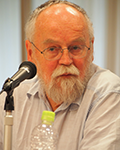
Holds a Ph.D. in physics. Born in 1947. President of the German Society for Radiation Protection. Member of Otto-Hug Radiation Institute in Bonn, and also member of the board of directors for European Committee on Radiation Risk (ECRR). Has participated in many projects analyzing the Chernobyl nuclear power plant accident as well as the Fukushima Daiichi nuclear power plant accident. Participated in activities to support rehabilitation of children residing in areas around the Chernobyl accident site. Founded a citizens' group, "Children of Chernobyl" in Berlin in 1990, and has been on the board of German Association for Chernobyl Help (DVTH - Deutscher Verband für Tschernobylhilfe e.V.) in Munich for several years. Co-founder of the "New Forum (Neues Forum)," the first citizen's group founded in the 1989 democratic movement of East Germany. Served as a Minister for several months in the Hans Modrow government, after the fall of the Berline Wall, with the goals of reforming energy policy and of closing all nuclear power plants in East Germany. Served as a representative, elected from the New Forum, of the Abgeordnetenhaus of Berlin (the state parliament of Berlin) from 1990 to 1995.
www.strahlenschutz-gesellschaft.de
SHIMAZONO Susumu
Affiliation:Faculty of Theology, Institute of Grief Care, Sophia University Emeritus professor of the University of Tokyo
Research Areas:Religious Studies, Death and Life Studies, Bioethics
Profile
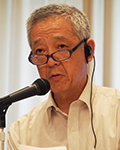
SHIMAZONO Susumu, is a Professor in the Faculty of Theology, Sophia University, and an Emeritus Professor of Religious Studies of the University of Tokyo, has published widely on modern and contemporary religious movements as well as on modern Japanese religions in general. He has published an English book titled From Salvation to Spirituality: Popular Religious Movements in Modern Japan (Trans Pacific Press, 2004).






